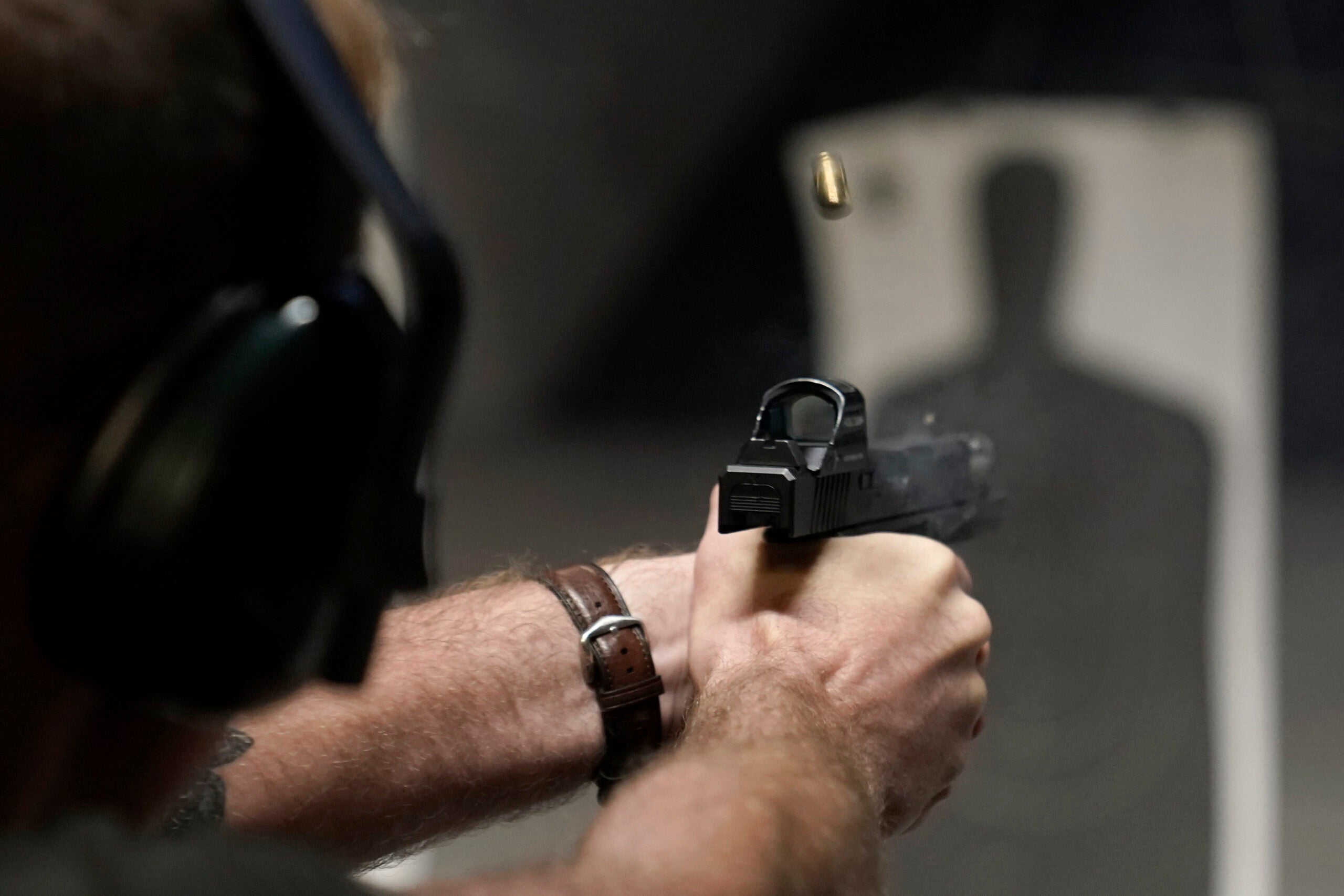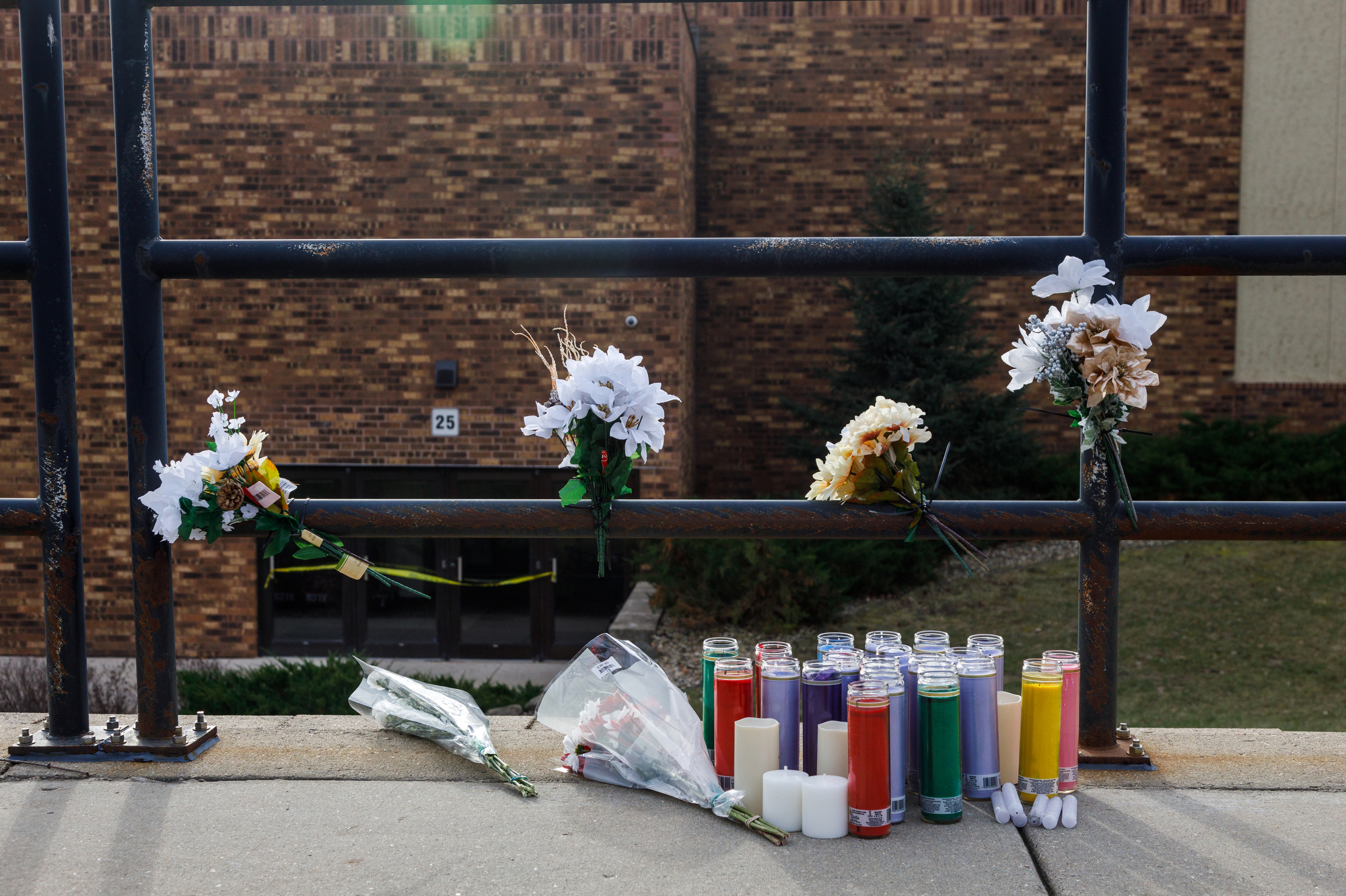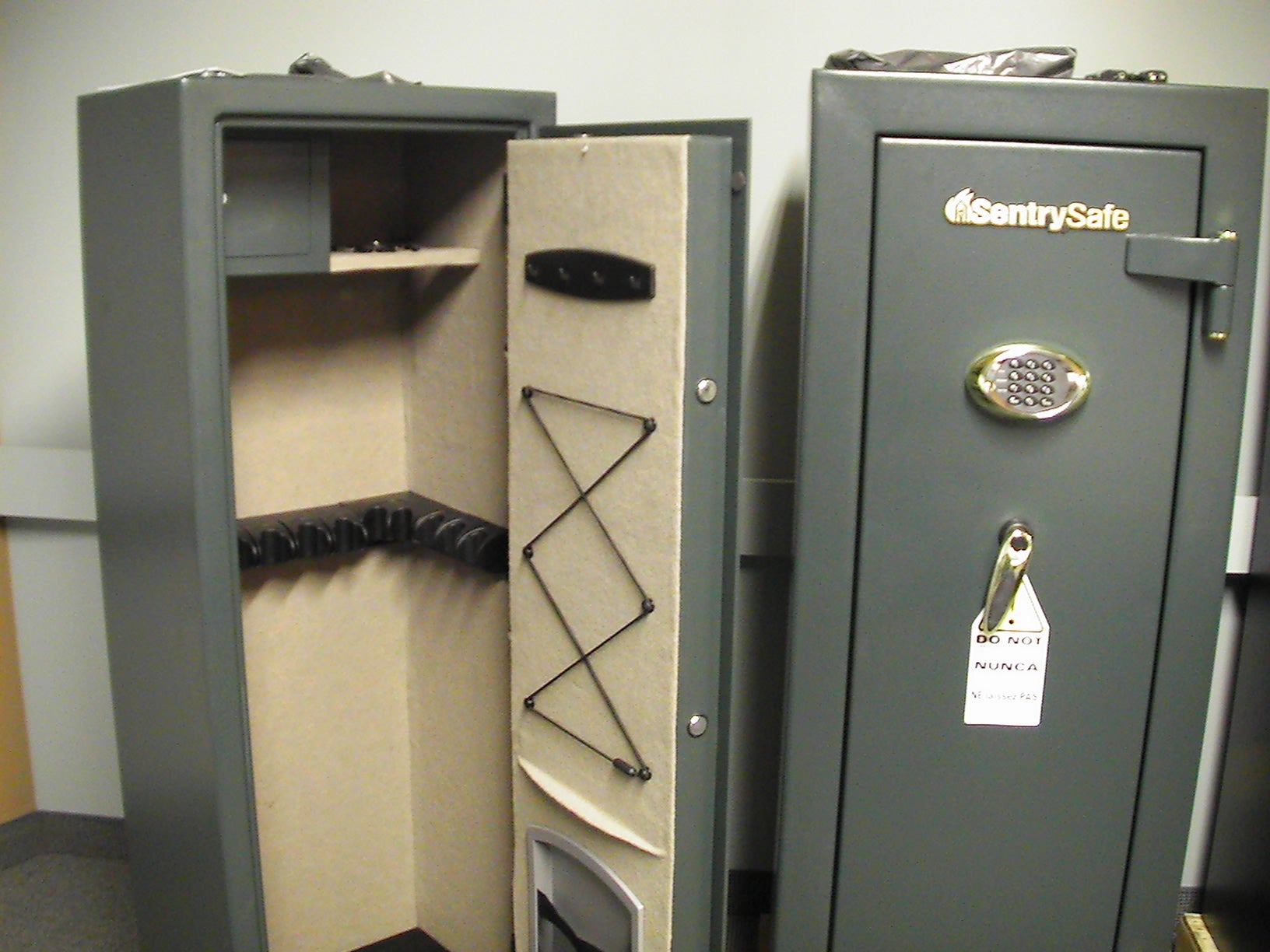Nearly 1 in every 5 gun owners in Wisconsin knows another gun owner who has experienced suicidal thoughts, according to estimates by a recent poll aiming to provide the most extensive view of firearm ownership in the state.
The poll by the Milwaukee Journal Sentinel and the Marquette University Law School surveyed 354 Wisconsin gun owners on more than 30 questions, including the types of guns owned and firearm storage practices.
Previous reporting by the newspaper found guns have been more often linked to suicides than homicides in the state. On average, about 71 in every 100 gun-related deaths in Wisconsin were determined to be suicides.
News with a little more humanity
WPR’s “Wisconsin Today” newsletter keeps you connected to the state you love without feeling overwhelmed. No paywall. No agenda. No corporate filter.
Reporter John Diedrich recently joined WPR’s “The Morning Show” to discuss the poll’s findings. He said earning trust from skeptical gun owners proved paramount to learning more about them.
“We were trying to reveal new information,” he said. “Gun owners really felt in my interviews, that we were in an exploratory stage and didn’t really have a conclusion in mind.”
On “The Morning Show,” Diedrich explained how pollsters sought to earn trust from gun owners through their language choices and discussed several of the survey’s results.
The following was edited for brevity and clarity.
Lee Rayburn: Did the poll raise concerns about gun owners harming themselves with their firearms, as this was at least to some degree the impetus for you to explore this polling?
John Diedrich: We did ask about that, and (nearly) 20 percent of our respondents reported that they knew somebody who had suicidal thoughts with a firearm.
Also, there was another question about storage and holding guns voluntarily. This is a practice that goes on among gun owners — a minority but really such a big category and a big issue that was noticed. From what (Marquette University Law School Pollster Charles Franklin) and others tell me, that’s probably an undercount. But we did find that was an issue.
Also among gun owners, there is a practice of holding guns for others during a time of crisis.
LR: Franklin says talking about owning a gun is like talking about how much money you make. People are not too quick to disclose their information. How then did pollsters convince gun owners to talk?
JD: We knew this would be a problem coming in, because this is one of the questions that people don’t generally answer. One of the reasons why is the language that is used… it sounds like in some of the polling language that there might be an agenda or something like that.
We really went to a great extent to work with gun owners and Charles (Franklin), who grew up around firearms. He had a gun in his home growing up, so he’s familiar. We talked about what language would be more invitational and less off-putting.
The results were very encouraging because all 354 gun owners answered all of our questions. They’re pretty personal questions. I was really encouraged that we got that buy-in.
LR: How were the questions worded? How did you earn that trust?
JD: Gun owners told me that reports sometimes jump to solutions, typically legislative solutions. And certainly, that’s part of the discussion. But our project, we were trying to reveal new information. Gun owners felt that we were in an exploratory stage and didn’t have a conclusion in mind. I’ve written a lot of pieces on guns over the years, and some of my work maybe has veered into that area in the past.
For instance, we asked about defensive gun use. A lot of times, that’s like a yes or no answer. Have you ever used a gun in a defensive scenario? Well, that’s just really one part of a more complex question. In that question, we had like four or five questions.
We got to define “defensive.” And we went down the line to say: Did you declare you had a gun? Did you show you had a gun? Did you draw and point the firearm? Then (we went) down to: Did you discharge the firearm? It was more complex than a yes or no question.
LR: An estimated half of Wisconsin households have at least one firearm in them. What kinds of guns do Wisconsinites own?
JD: Handguns were at No. 1. No. 2 was a tie between what we might call a traditional hunting rifle and shotgun. And then a somewhat distant third was the AR-15 or that style of gun.
What was interesting is that the AR-15 percentage of ownership — which was 14 percent in our survey — actually matches a Georgetown survey of the entire country. Wisconsin in that survey was listed as the lowest percentage of AR-15 ownership when compared to the general population.
One of the explanations that we think might be behind this is that … we’re still predominantly a firearms hunting state. Within the hunting culture, it’s somewhat debated to use AR-15’s in hunting.
LR: What did Wisconsin gun owners say about how they store their weapons?
JD: The majority of gun owners report that they keep their guns secured, locked in some sort of locking device. Whether they’re loaded or not, they’re in a locking device. The smallest category was loaded and unlocked. That’s a category that we have heard about in accidental shootings a lot. It’s not a scenario that actually happens that often. It’s 1 percent of overall gun deaths, and yet, it’s uniquely tragic and preventable, as the experts I talked to suggest, especially with children involved.
If you or someone you know is considering suicide, call or text the three-digit suicide and crisis lifeline at 988. Resources are available online here.
Wisconsin Public Radio, © Copyright 2026, Board of Regents of the University of Wisconsin System and Wisconsin Educational Communications Board.







